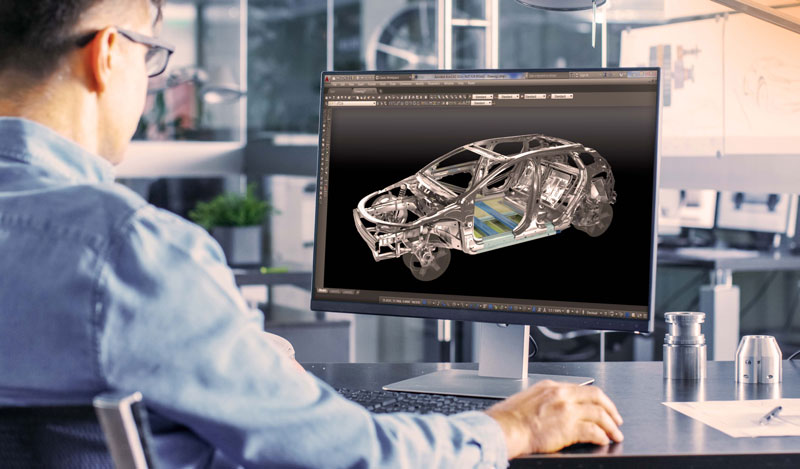Maximize your vehicle design
As a designer, “maximizing your design” simply means the ability to find materials that allow you to execute as many of your design ideas as practical. Put another way: the design should determine the material selection — and not the other way around.
OEMs’ specifications for strength continue to rise. In response, SSAB constantly expands our Docol® AHSS offerings, giving designers an ever-increasing selection of strong, lightweight steels for critical auto safety components.
Less material, same strength
To reduce component weight, you want to use the least amount of materials that still meets OEM strength standards. Going thin is less risky if your materials supplier demonstrates consistent quality and thicknesses.
At SSAB, we always produce the same Docol AHSS grades (e.g., Martensitic, Dual Phase, etc.) at the same mill, so our quality and thicknesses are extremely consistent. Another benefit: you’ll find your final components can be more precise and therefore easier to assemble — especially during automated assembly.
Keep production up and running
To maintain strength while using less AHSS, your design’s geometry will probably become more complex. Work with us so we can confirm that your trial AHSS materials will have the local and global formability and sheared edge quality needed for your design.
For example, the new Docol® HE series has a finer microstructure and improved edge ductility, allowing components with cut edges to be formed with reduced risk for micro cracks, burrs or failure. Not only does this make a more durable component in the long run, it also helps reduce scrap and avoid the risk of downtime during production.
Save money and weight
SSAB’s customers and our in-house designers are continually discovering many designs for AHSS-based auto safety components that simulate very much like aluminum — and at the same weight as aluminum — but for significantly less cost. While aluminum may continue to be used on some premium car models for now, AHSS and UHSS steels seem destined to dominate the rest of the market. In particular, the coming generation of mass market EVs seemed ready to utilize UHSS steels extensively on items such as protective battery enclosures.
Accelerate your designs
Our AHSS steel experts are ready to help you improve crashworthiness, lower weight, and improve your Life Cycle Assessments. Our support includes:
- Material selection
- Fatigue assessments
- Forming and tooling recommendations
- Welding and joining expertise
- Fast trial materials delivery
